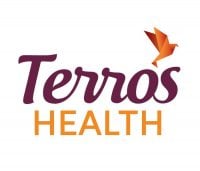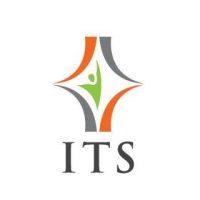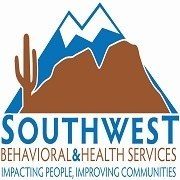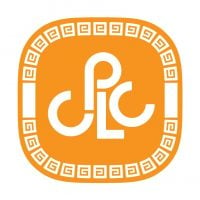About Terros Health Recovery Center in Arizona
Terros Health Recovery Center in Phoenix, Arizona is a comprehensive treatment facility specializing in helping individuals struggling with drug addiction, opioid addiction, dual diagnosis, and mental health disorders. With a range of treatment options available, Terros Health Recovery Center assists individuals in their journey towards sobriety. Whether seeking outpatient, detox, or residential care, this facility provides a supportive environment and evidence-based treatment tailored to meet each person's unique needs.
Terros Health Recovery Center offers a multitude of services and treatment methods to address addiction and substance abuse. Their team of experienced professionals utilize evidence-based practices such as cognitive-behavioral therapy, motivational interviewing, and group therapy to facilitate lasting recovery. Additionally, they provide comprehensive dual diagnosis treatment, addressing both addiction and underlying mental health concerns. The center emphasizes holistic approaches, promoting overall well-being through nutrition education, physical activity, and stress management techniques. By focusing on the individual's specific needs and utilizing a multidisciplinary approach, Terros Health Recovery Center strives to help individuals regain control of their lives and achieve lasting sobriety.
Genders
Ages
Modality
Additional
Conditions and Issues Treated
Treatment for opioid addiction is best made with the help of medical professionals who are experienced in dealing with these types of drugs. This treatment can involve medications, exercise, behavioral therapy, and counseling sessions. It is important to note that the effectiveness of treatments for opioid addiction vary, so it is vital to research which treatment options are suitable for each individual.
Many people who struggle with opioid addiction need to attend specific programs like methadone , Suboxone or Vivitrol clinics.
These types of programs will provide the patient with legal, prescription medications that can help them overcome their cravings for illegal opioids like heroin or fentanyl . If the patient has a chronic condition like Hepatitis C, they must undergo treatment before they can begin taking these medications.
Levels of Care Offered
This center offers a variety of custom treatment tailored to individual recovery. Currently available are Detox, Outpatient, Residential, with additional therapies available as listed below.
Detox is the stage of recovery where the drugs or alcohol are entirely removed from your body. There are two different ways to detox, with medications and without. For many drugs and alcohol, the acute phase of detox can be completed in a number of days.
Outpatient treatment can be considered the lowest intensity level of addiction treatment in Phoenix, AZ. It is ideal for early phase addiction or lower intensity addictions. Terros Health Recovery Center peer group support, 12-step programs, and individual counseling are likely to be involved.
Residential treatment programs are those that offer housing and meals in addition to substance abuse treatment. Rehab facilities that offer residential treatment allow patients to focus solely on recovery, in an environment totally separate from their lives. Some rehab centers specialize in short-term residential treatment (a few days to a week or two), while others solely provide treatment on a long-term basis (several weeks to months). Some offer both, and tailor treatment to the patient’s individual requirements.
Therapies & Programs
Individual therapy is ideal for addicts who want to focus on themselves. It can also be helpful for those whose withdrawal symptoms are exacerbated by the presence of other people.
Benefits of individual therapy are:
- Access to a personalized treatment plan that focuses on the individual needs of the addict
- More privacy during treatment sessions
- Better personal development through introspection
- Increased self-awareness regarding addictive tendencies in order to avoid relapse
- Greater potential for a long-term recovery plan
- Receiving professional advice and detox assistance from medical staff
Couples therapy is a treatment method used to help couples in which at least one member of the couple has a drug addiction. Couples therapy can be used whether the addicted partner is using drugs or in recovery. An additional benefit of couples therapy is that it can help make other types of treatment, such as 12-step programs, more effective.
Family therapy can help you and your family deal with old issues that may trigger substance abuse. The idea behind family therapy for drug addiction is that you are never fully healed from substance abuse until you’ve healed your relationship with your family, too. To get sober, you need to find a different way to cope with the pain in your life.
This is when a group of people in various stages of recovery meet up and discuss their experiences, triggers, successes, failures, and even alternative therapies! Unlike support groups where everyone already knows each other, group therapy is conducted along side outpatient or inpatient treatment at Terros Health Recovery Center.
Trauma therapy is a clinical process that helps individuals deal with mental stress often caused by traumatic events. The therapist helps the person identify, understand and work through the problem. This is done with the help of talking about it in group or one-on-one counseling sessions.
Therapists use relaxation, role-playing, art, and music to help the person open up about what is bothering them. Some examples include:
- Talking about the traumatic event and how it affected them.
- Helping those who have PTSD to deal with their nightmares and recurring memories.
- Working with individuals to resolve the issues triggering the stress, whether seeing someone who reminds them of what happened or feeling helpless.
The individual is also encouraged to help others that are struggling with similar problems. This often helps them feel empowered and gives them hope.
Trauma therapy is not for everyone; it is usually reserved for people who have recently experienced a traumatic event and struggle to get over it. It is generally done for children, teenage victims of sexual assault, and war veterans.
Dialectical Behavior Therapy (DBT) is used by drug treatment centers across the United States to help drug addicts become sober. DBT is a type of Cognitive Behavioral Therapy (CBT) that combines traditional behavioral treatments with elements from DBT, including dialectics, distress tolerance, and interlocking issues. Some of the negative behaviors associated with addiction, such as impulsivity and mood swings, are addressed in DBT, while others like craving and isolation are not. It is commonly used to treat Borderline Personality Disorder (BPD) along with substance abuse disorders.
The four DBT modules are mindfulness, interpersonal effectiveness, emotion regulation, and distress tolerance:
- Mindfulness helps recovering addicts learn to identify and experience their emotions while realizing that they are not permanent.
- Interpersonal Effectiveness includes assertiveness, asking for what you need, and saying no while improving communication skills.
- Distress Tolerance has recovering addicts learn how to tolerate distress at the moment and avoid resorting to substance abuse.
- Emotion Regulation is used to identify, express and change emotions.
CBT is a psychotherapy approach and method. [ws-nap-name] people to examine how their thoughts, including habitual harmful and inaccurate thinking, affect their actions. CBT is based on the idea that rigid, inflexible thinking leads to poor stress management, which leads to emotional distress.
Similarly, CBT helps people identify and change negative behaviors. It makes you question your perceptions and ask if they are realistic. CBT asks people to examine their behaviors and emotional responses and how they affect their lives. CBT aims to change people’s thinking and behavior to lead a more balanced and healthy life.
Moreover, CBT has been shown to reduce anxiety disorders, depression, and symptoms associated with harmful thoughts or actions.
Eye Movement Desensitization and Reprocessing (EMDR) therapy is a treatment method that helps reduce the impact of traumatic memories on individuals. It involves following a bar of light or watching a therapist’s finger move back and forth. This mimics the eye movements of REM sleep, which allows the brain to reprocess memories. EMDR therapy is combined with behavioral therapies to address the root cause of the problem. This reduces the desire to escape painful memories with drugs.
EMDR is effective in reducing the craving one experiences while being treated for drug addiction. Studies have shown that patients who undergo this therapy use drugs less and stay sober for more extended periods than those who do not. It is also more beneficial than talk therapy and medication. This can be performed in combination with medications to reduce the adverse side effects. While some believe that it does not treat the root cause, studies have shown that therapy combined with medication brings in better results.
Those struggling with addiction can benefit from learning certain life skills. It is not as simple as quitting drinking or taking drugs and thinking that the hard part is over. Being sober means living a whole new way of life. Many recovering addicts have found that they need to develop talents like time management, organization, communication skills, socialization skills, and self-esteem to make their life in sobriety work, Terros Health Recovery Center is here to help with that.
A 12-step program is a mutual support group in which members share their experiences with addiction. The goal of these programs is to provide support and encouragement throughout the recovery process.
12-step programs are beneficial for:
- Individuals who have already stopped drug/alcohol use
- Individuals who have already stopped drug/alcohol use, and are looking for a support system to maintain sobriety
- People who may be thinking about quitting their drug/alcohol use
- People who do not have access to other types of addiction treatment
Patient Experience
Experiential Therapy at Terros Health Recovery Center
Experiential Therapy is a type of therapy that involves activity to recreate situations that may have caused trauma or negative emotions. Experiential therapy at Terros Health Recovery Center in Phoenix, AZ can involve acting, props, arts and crafts, animal care or other tools that may be effective. This therapy is done on an individual basis and can help revisit and heal from past traumas. Trust between the therapist and individual is important for success. Experiential therapy can help you more closely become you and move through life positively and authentically.
Payment Options Accepted
For specific insurance or payment methods please contact us.
Additional Details
Specifics, location, and helpful extra information.
Phoenix, Arizona 85031 Phone Number(602) 278-1414 Meta DetailsUpdated November 25, 2023
Staff Verified
Terros Health Recovery Center Patient Reviews
There are no reviews yet. Be the first one to write one.
Phoenix, Arizona Addiction Information
Arizona has some of the highest rates of prescription drug abuse in the United States. Methamphetamines, heroin and morphine are among the most commonly abused substances. Prescription pain relievers were prescribed to 348 million people in 2012, enough to medicate every adult in Arizona for 2 full weeks. The number of people with substance use disorders in Arizona has remained relatively constant over the past few years.
In 2012, over 246,000 people were living in Phoenix dependent on or abusing drugs. This amounted to 10.8% of the city's population. In 2016, over 1,000 emergency room visits related to heroin and over 2,500 for cocaine. These numbers are only going up. There are many different rehabilitation facilities in the city and some 12-step meetings and support groups available for help.
Treatment in Nearby Cities
- Sun City, AZ (8.7 mi.)
- Chinle, AZ (235.9 mi.)
- Holbrook, AZ (150.3 mi.)
- Tolleson, AZ (6.4 mi.)
- Yuma, AZ (153.1 mi.)
Centers near Terros Health Recovery Center
The facility name, logo and brand are the property and registered trademarks of Terros Health Recovery Center, and are being used for identification and informational purposes only. Use of these names, logos and brands shall not imply endorsement. RehabNow.org is not affiliated with or sponsored by Terros Health Recovery Center.








